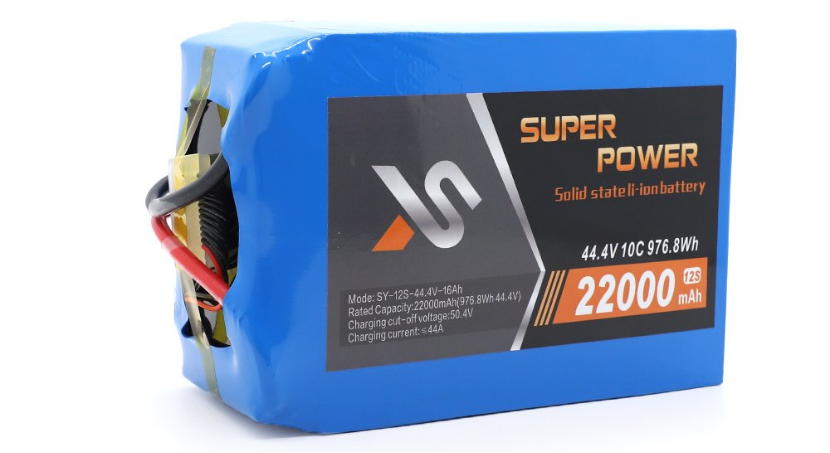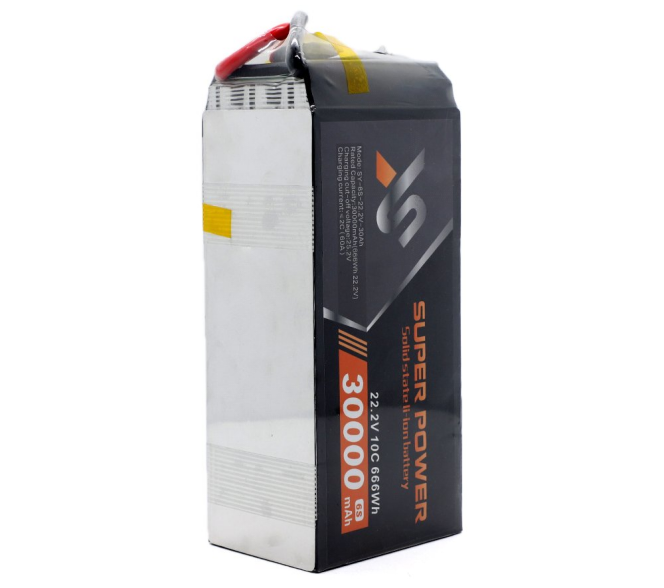Key Factors Influencing Drone Battery Life
Battery Capacity and Flight Duration
Battery capacity drives flight time. It is measured in milliampere-hours (mAh). Ampere-hours (Ah) are used too. Higher capacity means longer flights. Models like the SY-12S-44.4V-22Ah shine here. So does the SY-6S-21.6V-39Ah. They exceed nominal capacities. This ensures extended use. They suit tasks like aerial photography. Industrial inspections benefit too. Super capacity outperforms standard ratings. It supports prolonged operations.
Drone Weight and Battery Impact
Weight affects battery performance. Heavier drones need more power. Lifting and moving take energy. This shortens flight time. Payloads add strain. Cameras and sensors are examples. Choose lightweight drones. Optimize payloads. These steps boost efficiency.
Weather’s Effect on Batteries
Weather impacts battery life. Cold slows chemical reactions. This reduces efficiency in lithium-ion cells. High winds demand more power. Drones stabilize against them. This drains batteries faster. Rain poses risks. Extreme heat affects safety. Weather conditions shape performance.
Flying Style and Battery Use
Flying style matters. Aggressive moves burn energy. Rapid acceleration uses more power. Frequent altitude shifts drain batteries. Steady flights save energy. Smooth patterns help. Avoid unnecessary actions. This extends flight time.
Understanding Drone Batteries
Battery Types in Drones
Drones use specific batteries. Lithium-ion polymer (LiPo) is common. Lithium-ion (Li-ion) is another. They are lightweight. They have high energy density. Shengya Electronics offers advanced options. Their solid-state lithium-ion soft pack cells excel. They ensure safety. They offer 800–1000 charge/discharge cycles.
Traits of Top Drone Batteries
High-performance batteries stand out. They have strong energy density. Safety features are robust. They last longer. Shengya’s batteries range from 270Wh/kg to 340Wh/kg. Configurations include 6S1P and 14S1P. They are reliable in tough conditions. They suit professional uses.
Solid-State Battery Advances
Solid-state lithium-ion batteries are innovative. They surpass traditional LiPo. They are safer. Some withstand punctures without fire. They offer long cycle lives. Energy density reaches 340Wh/kg. These traits suit future drone tech. They balance performance and durability.
How to Maximize Your Drone’s Flight Time
Efficient Battery Use in Flights
Battery efficiency extends flight time. Avoid aggressive flying. Rapid moves waste energy. Frequent altitude changes do too. Fly steadily. Use controlled patterns. This saves power. Reduce payload weight. Heavy drones use more energy. Extra gear like cameras drains batteries.
Choose the right battery. The SY-6S-21.6V-39Ah is a top pick. It has ≥39Ah capacity. Its energy density is 306Wh/kg. These ensure long flights. They improve efficiency.
Charging and Storage Tips
Proper charging preserves batteries. Use the recommended charger. Follow the set charge rate. The SY-12S-44.4V-22Ah uses 0.5C-2C. Avoid overcharging. Undercharging harms too. Both degrade battery health.
Storage affects longevity. Keep batteries cool. Store them dry. Avoid sunlight. Steer clear of extreme heat or cold. Store at 50% charge. This prevents capacity loss during inactivity.
Maintenance for Peak Performance
Regular upkeep boosts efficiency. Check batteries before flights. Look for swelling. Spot leaks. Clean connectors. This ensures good contact. It prevents power loss.
Track battery cycles. Shengya’s batteries last up to 1000 cycles. Optimal conditions help. Monitoring cycles predicts replacement needs. This maintains performance.
Exploring Advanced Solutions for Extended Flight Times
Custom Battery Packs
Custom battery packs transform drones. They meet specific needs. Shengya Electronics offers tailored options. Configurations like 6S1P suit various uses. So does 14S1P. These optimize power for tasks. Aerial photography benefits. So do inspections and emergency services.
Customization goes beyond capacity. It includes voltage. Connector types can be chosen. Out-of-line positions are adjustable. This ensures compatibility. It maximizes performance.
High Energy Density Batteries
High energy density batteries extend flights. Shengya’s range is 270Wh/kg to 340Wh/kg. They pack more power. They stay compact. This suits lightweight drones. Long endurance is possible. Agility remains intact.
The SY-14S-51.1V-31Ah is a leader. It has 295Wh/kg density. It maintains high safety. These batteries support long missions. They reduce recharge frequency.
Future Battery Trends
Drone battery tech is evolving. Solid-state lithium-ion batteries lead. They enhance safety. They extend cycle life. Some resist punctures without igniting. This ensures reliability.
Artificial intelligence (AI) is emerging. AI-powered battery management systems (BMS) optimize power. They analyze flight patterns. They monitor conditions. This extends flight time.
New materials like graphene are in focus. They boost energy density. They cut charging time. These could push flight times beyond current limits.
Frequently Asked Questions
How long do drone batteries last?
Flight time varies. Capacity affects it. So does weight and flying style. Times range from 20 minutes to over an hour. Advanced models go longer.
What batteries do drones use?
Drones use LiPo or Li-ion batteries. They are lightweight. They have high energy density.
Does weather impact battery life?
Yes. Cold reduces efficiency. Winds increase power use for stability.
What is a high-quality battery’s lifespan?
Shengya Electronics’ batteries last up to 1000 cycles. Optimal conditions are key.
Contact Taixing Shengya Electronic Technology Co., Ltd. for high-energy-density batteries. Explore customized drone solutions today!










